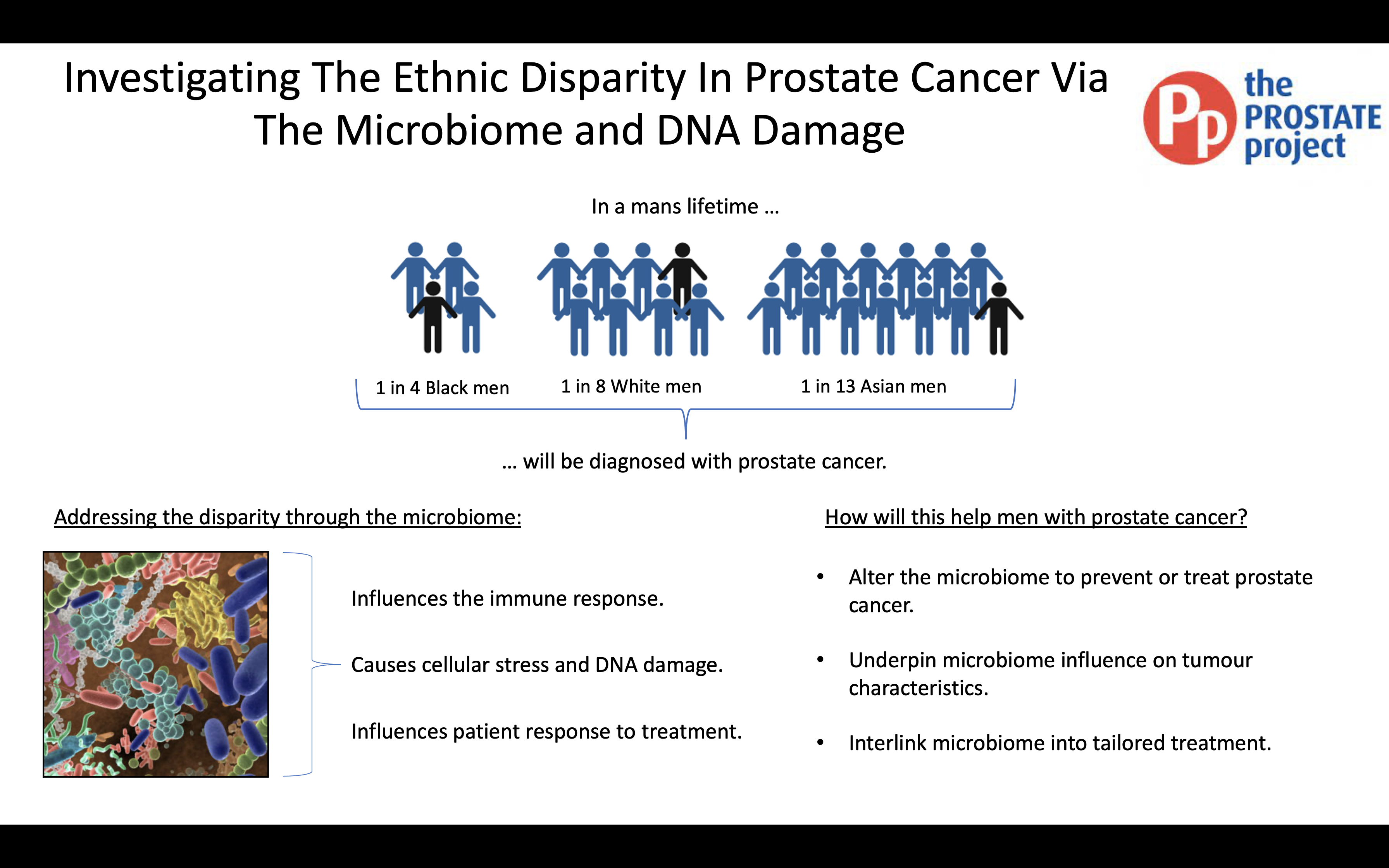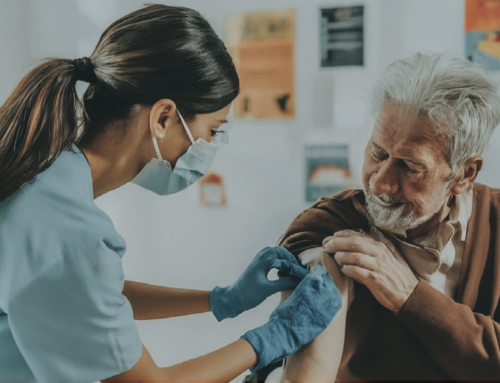
Due to your generous support, we are funding PhD student, James Thetford.
James is investigating the interplay between ethnicity, the microbiome and DNA damage in prostate cancer to understand how the microbiome of different ethnicities influences tumour biology and prostate cancer progression. He is looking at the influence of the microbiome on immune response, the extent of DNA damage and clinical outcome in patients of differing ethnicity. This is the first UK-based study investigating whether racial differences in microbiome are associated with prostate cancer among Black, White and Asian men.
He hopes this microbiome research will help to unlock some answers as to why black men are twice as likely to get prostate cancer compared to other men (1 in 4 black men compered to 1 in 8), as microbiomes have a dramatic impact on the immune response. Identification of a bacterial signature could help black men that could benefit from preventive and therapeutic microbiome-based targeted strategies.
Further details of the project
Men of African ethnicity exhibit a 60% higher lifetime incidence with twice the mortality from prostate cancer compared to their white counterparts. The reasons for this are not clear. Data looking at ethnic differences in other cancer types has shown a clear link between the patient’s microbiome with prognosis and how they respond to treatment. James is conducting the first UK-based study investigating whether racial differences in microbiome are associated with prostate cancer among Black, White and Asian men.
James has obtained 114 post-prostatectomy specimens (surgical removal of the prostate) from patients of different ethnicities with stage 3 prostate adenocarcinoma from 3 different NHS Trusts: The Royal Surrey, North Bristol and the Royal Marsden. The prostatectomy samples have been dissected into cancer and normal non cancerous samples which have now undergone shotgun metagenomic sequencing to investigate the bacterial microbiome. These investigations will profile the prostate microbiome, the communities of microorganisms living within the prostate and how these microbes may differ between the tumour areas and normal prostate tissue.
Analysis is currently ongoing and expected to take 6 weeks. However initial results are very promising, showing ethnic-specific microbial profiles with differences in the bacterial composition between normal and tumour samples. James aims to further characterise these ethnic-specific differences to see if they explain the ethnic disparities in prostate cancer.

Specific microorganisms have been linked to prostate cancer initiation and progression via the effect on several cancer-related processes, including the tumour immune microenvironment. Thus, in parallel to studying the microbiome, we are also investigating the immune response within the same tissues using a state-of-the-art imaging platform in collaboration with a global biotechnology company, Miltenyi Biotec. Their ‘spatial biology’ technology allows analysis of hundreds of different markers of the immune response allowing us to achieve a more detailed picture of the immune response in prostate cancer specimens from selected Black-African, Black-Caribbean, Asian and White-British patients.
James will comprehensively analyse the tumour-core, invasive-margin and normal prostate tissue which will lead to further high-throughput investigations with our in-house technology, the PhenoImager, to interrogate findings across our entire prostate cancer cohort.
James Thetford presenting his research
This study will reveal to what extent ethnicity influences specific microbiome profiles and increased incidence and aggressiveness of prostate cancer in black men. Identification of a bacterial signature could help to identify patient cohorts e.g., black men that could benefit from preventive and therapeutic microbiome-based targeted strategies. Such as the patient could have a fecal transplant. This procedure involves transferring healthy human stool to a recipient, typically via colonoscopy, enema, or other methods, to change the bacterial microbiome. Or pathogenic bacteria can be targeted with specific antibiotics.
And excitingly it may also be effective as a potential screening method to identify prostate cancer risk if such bacteria are identified.



